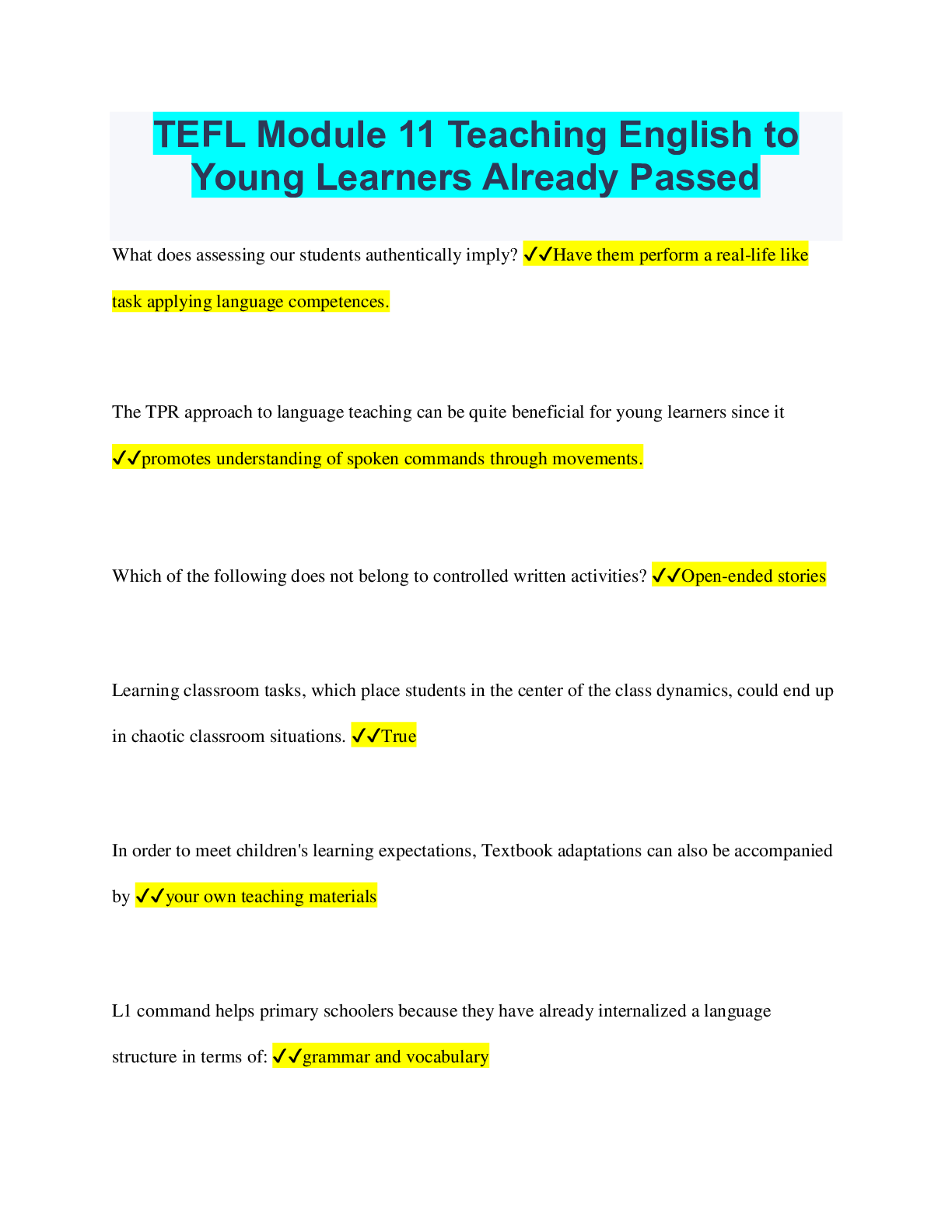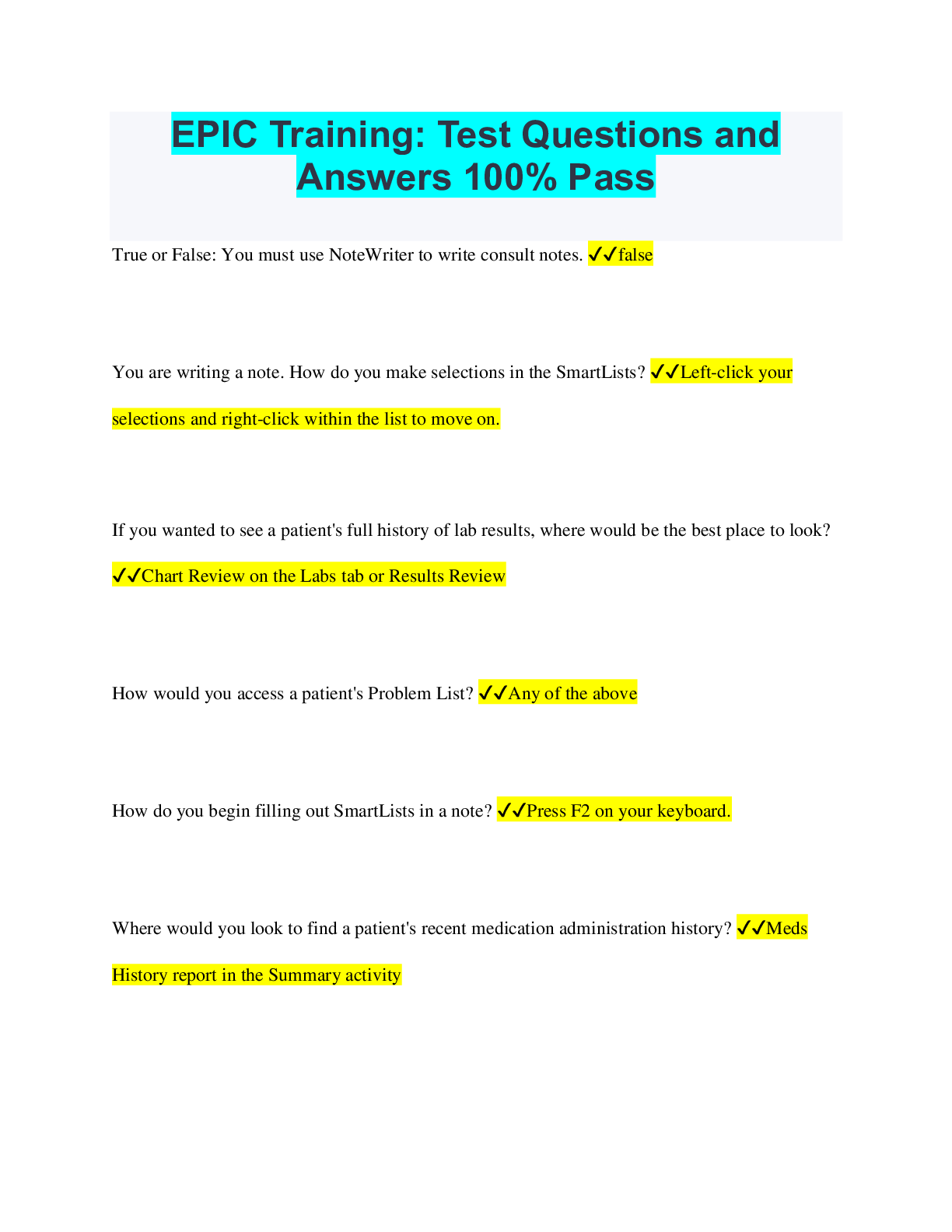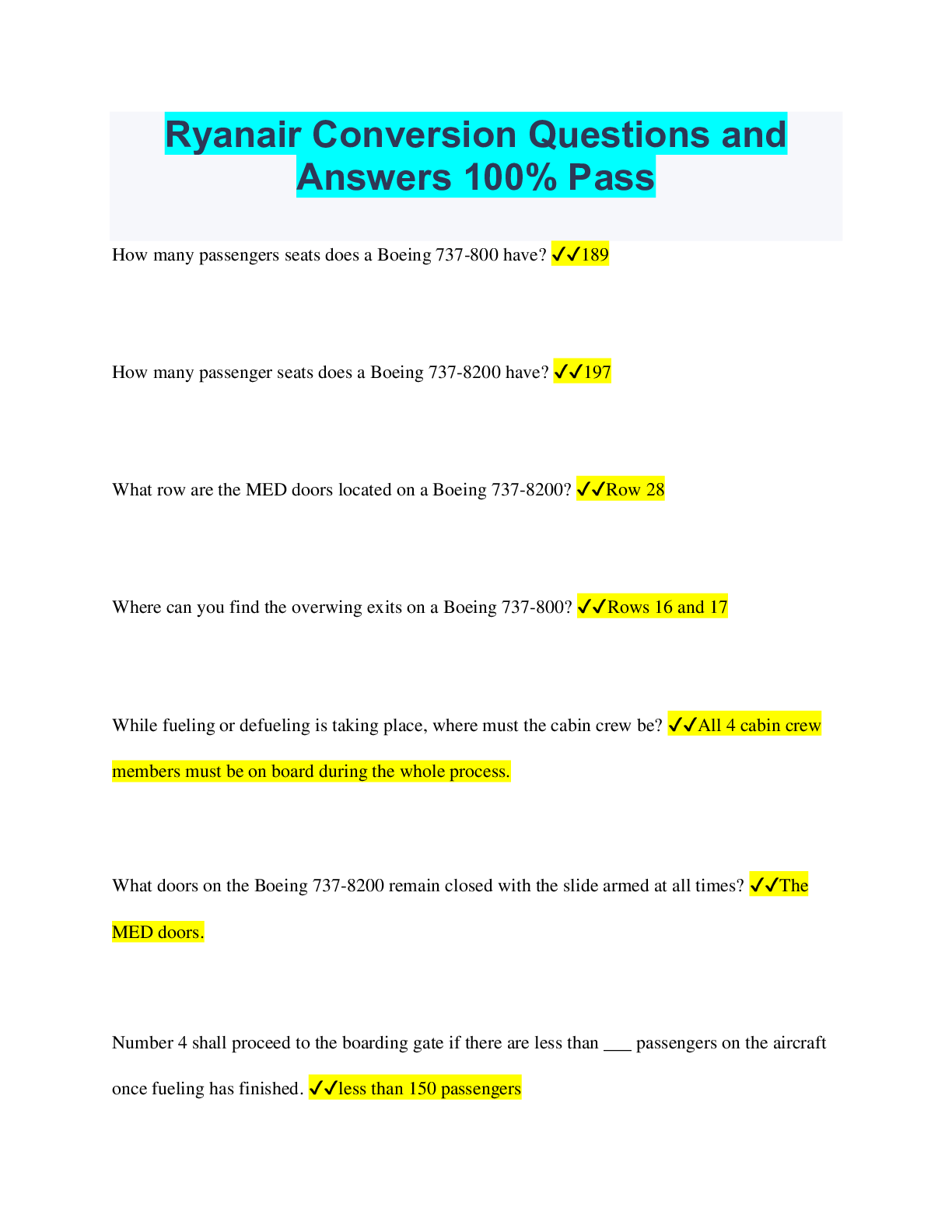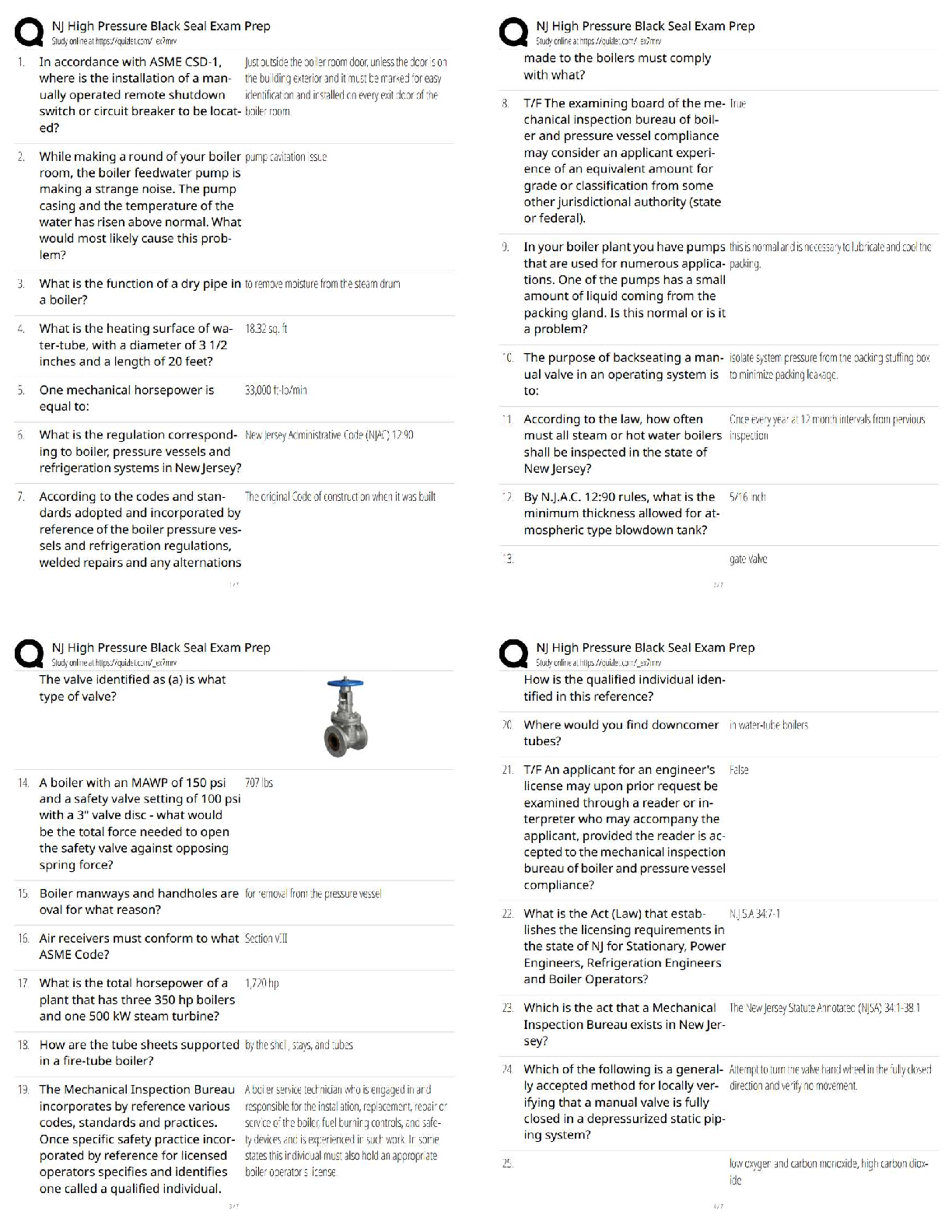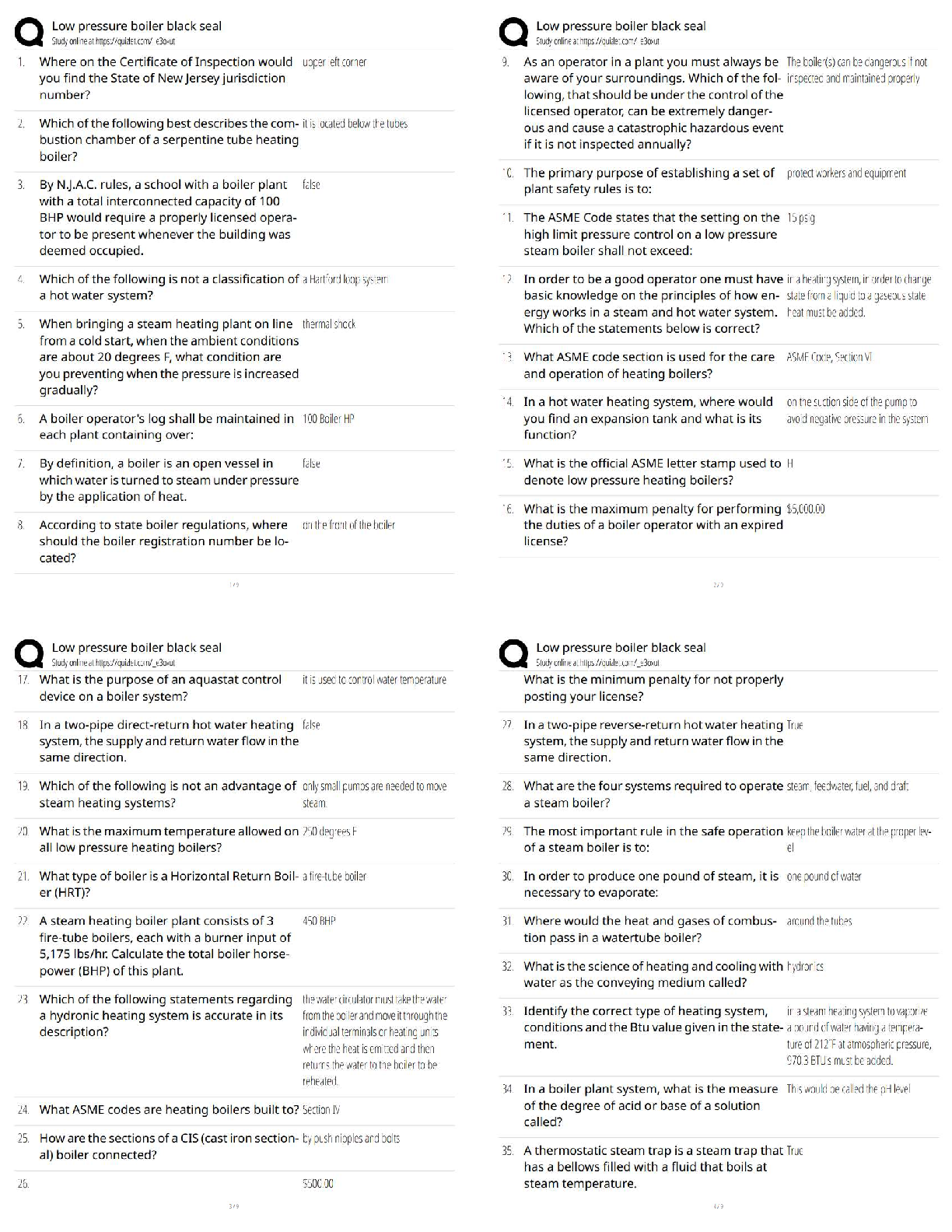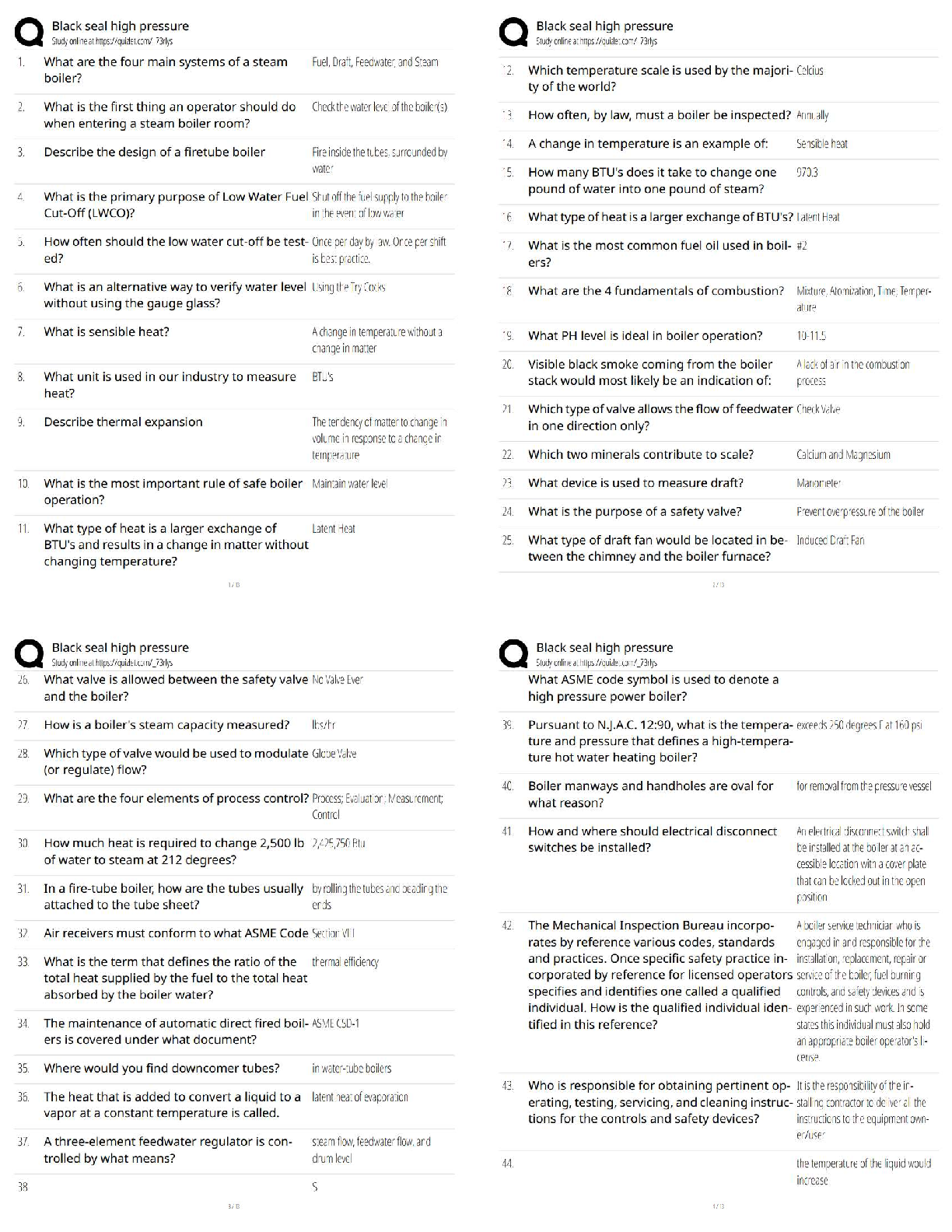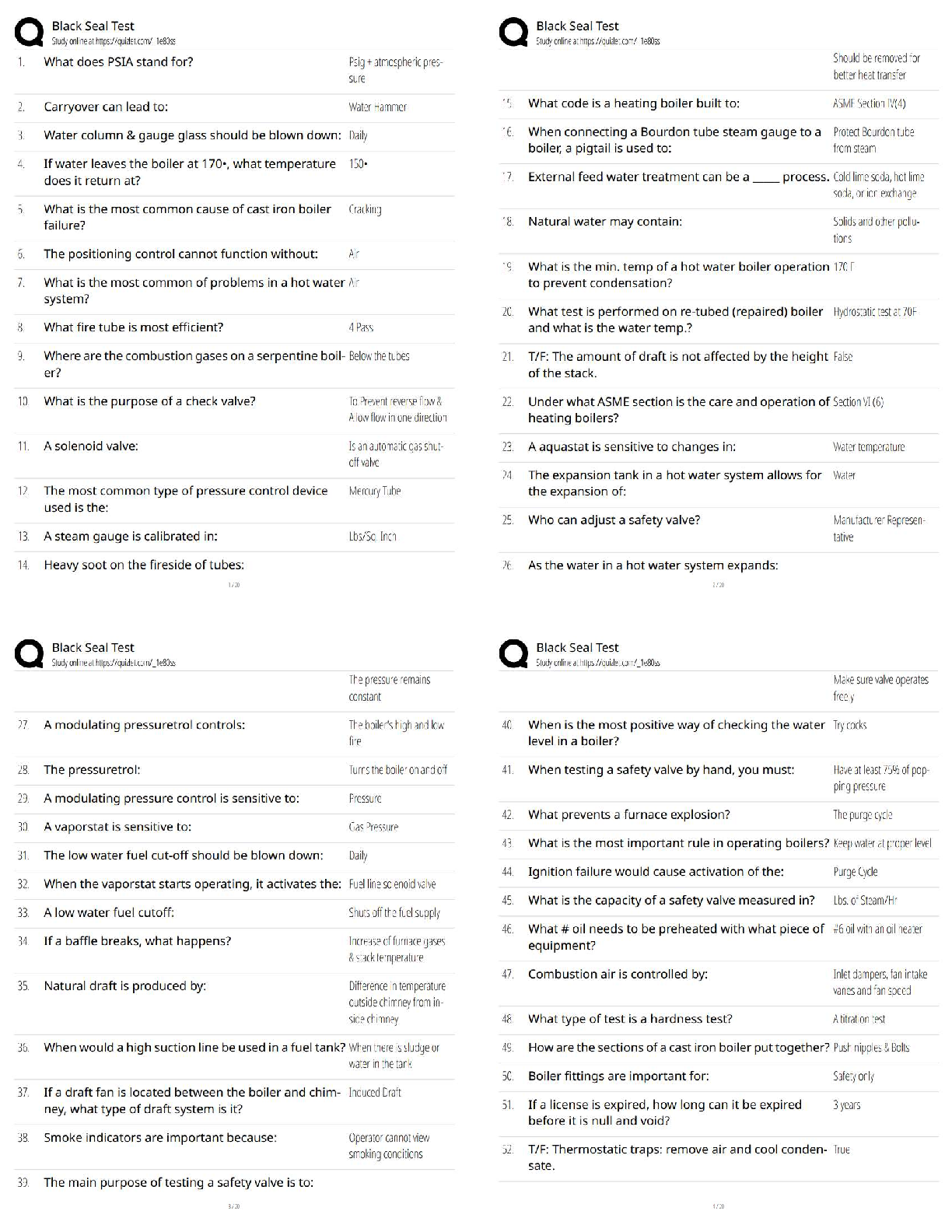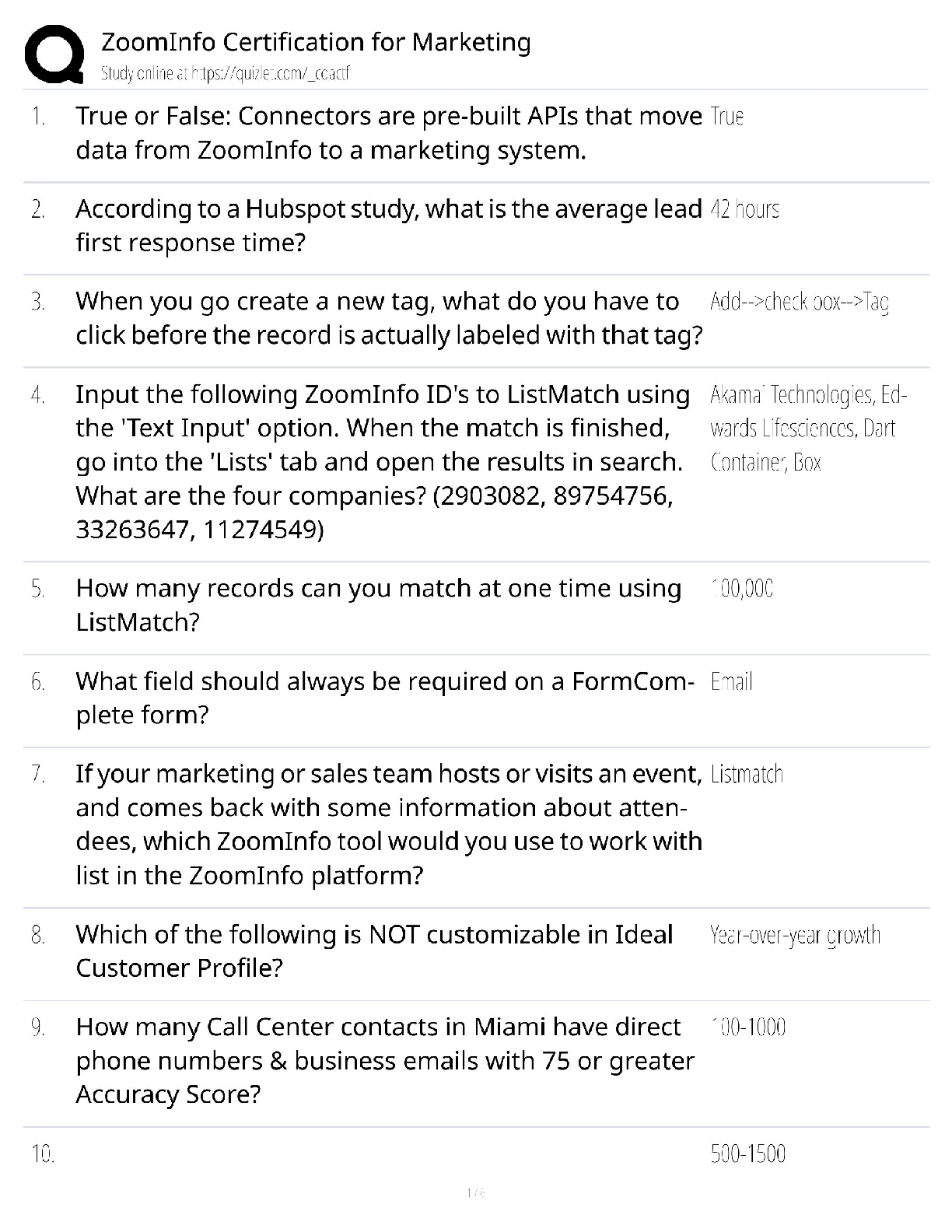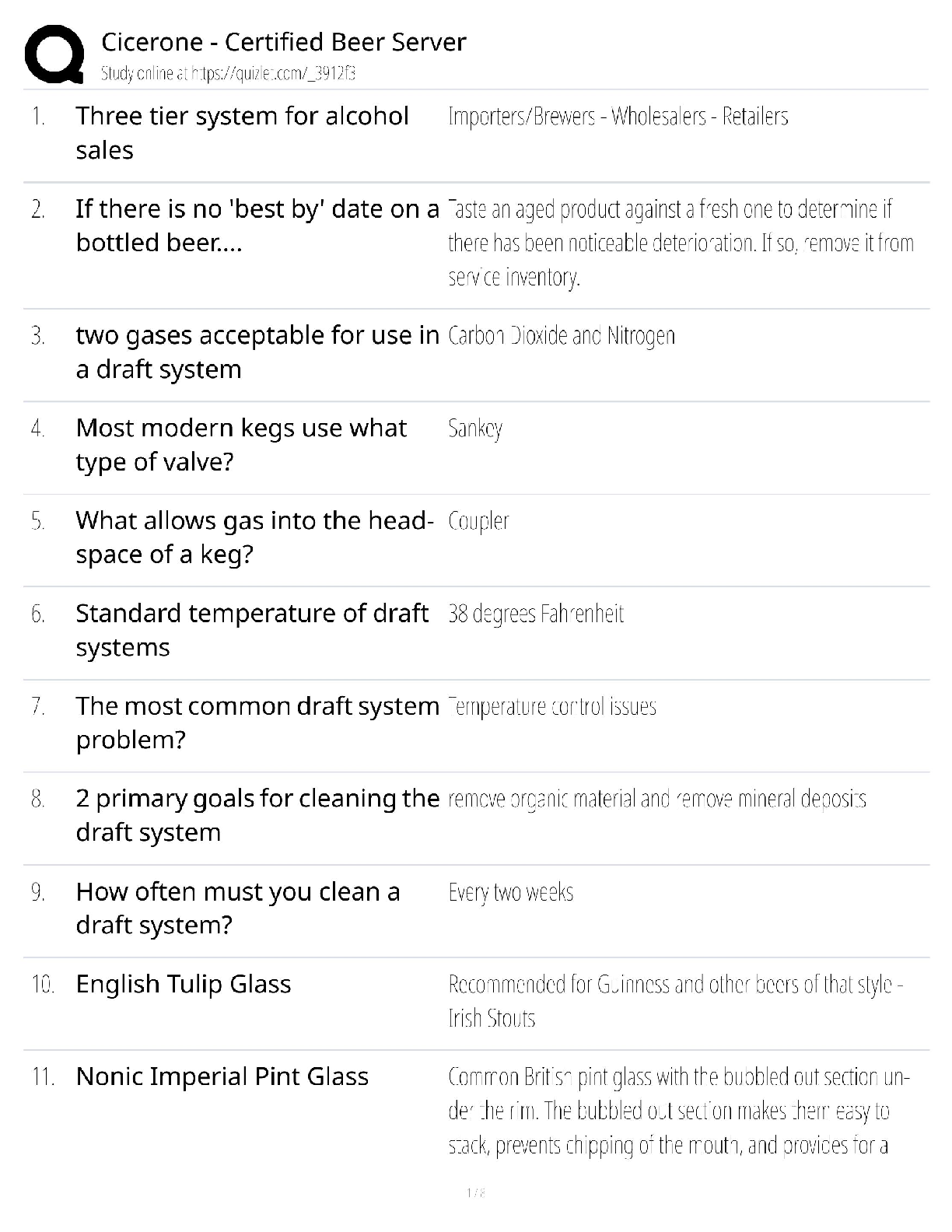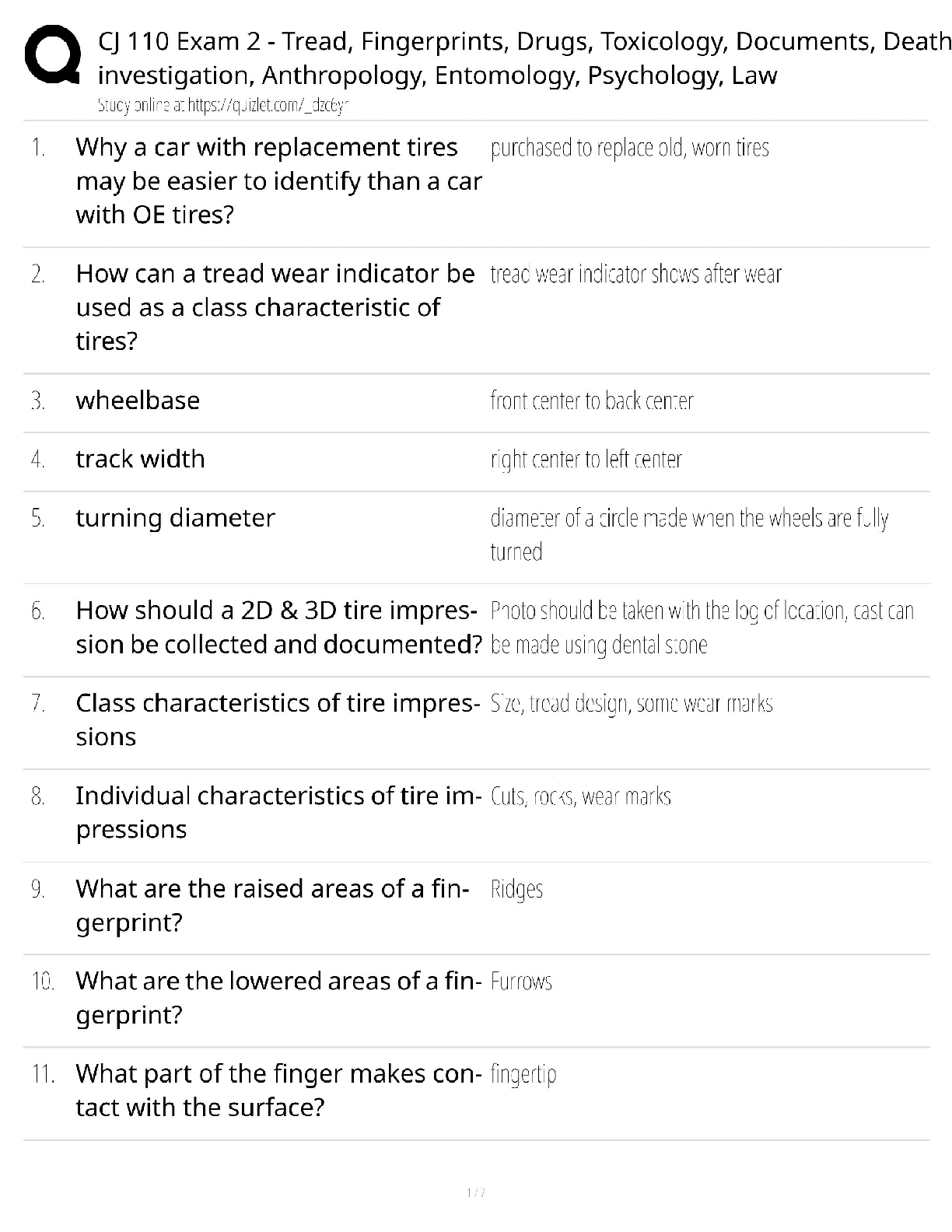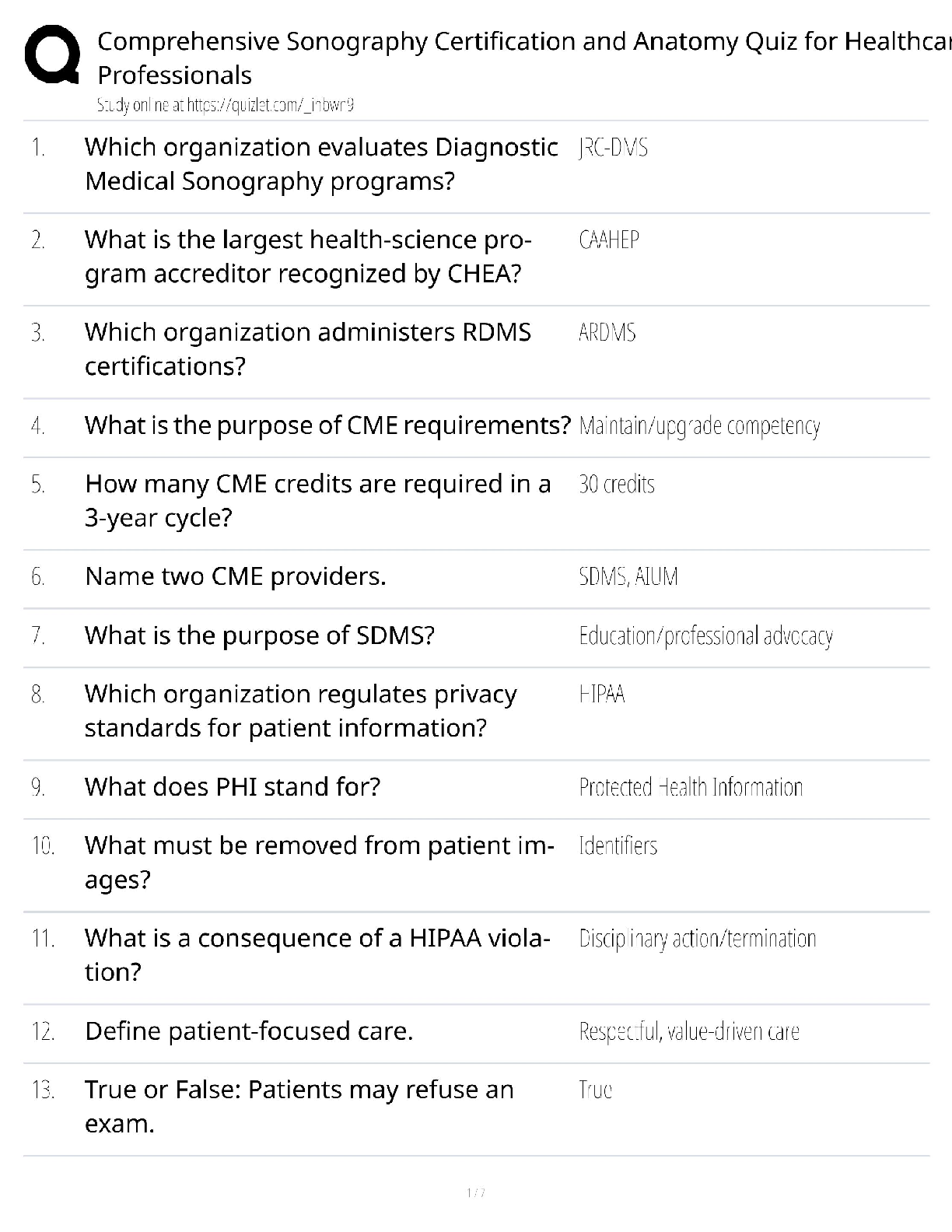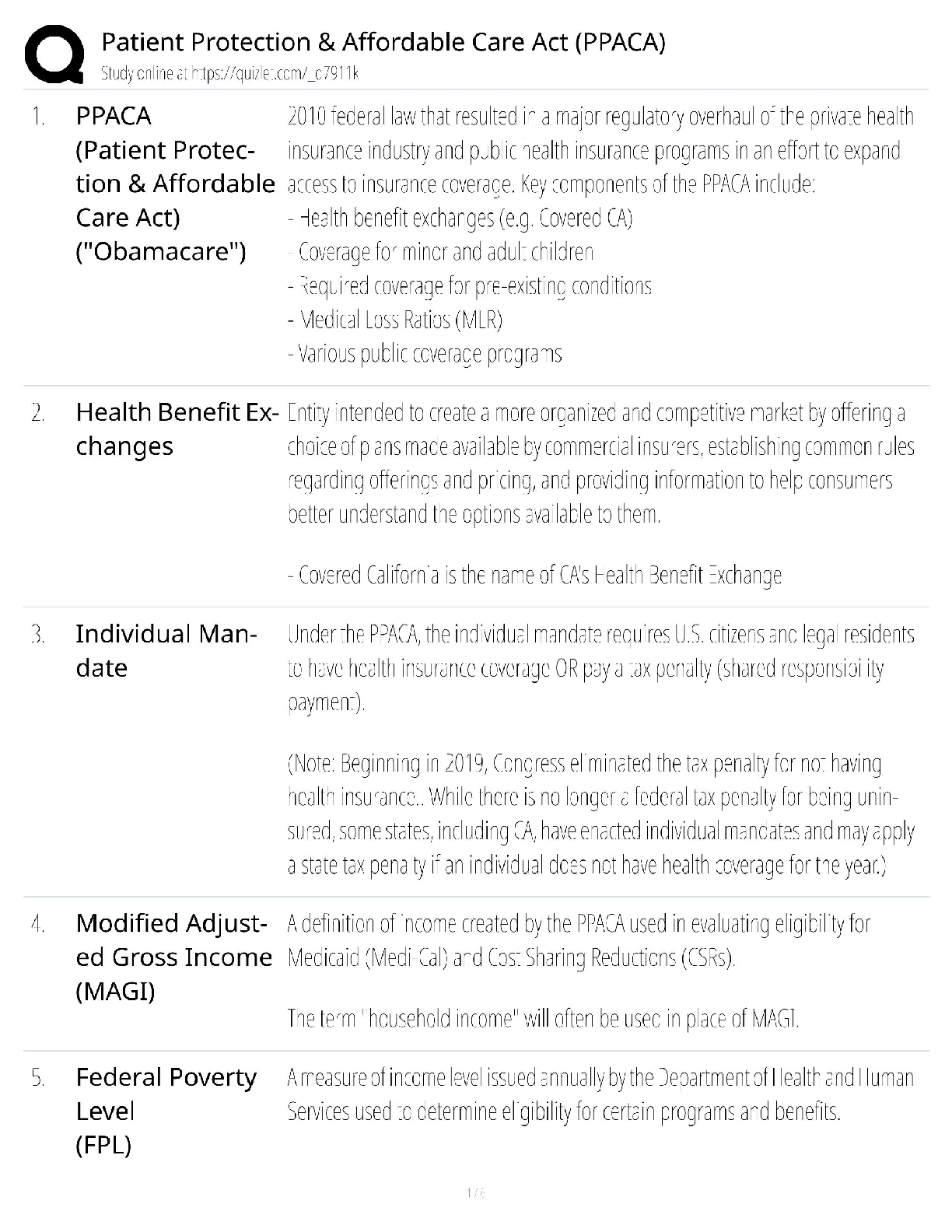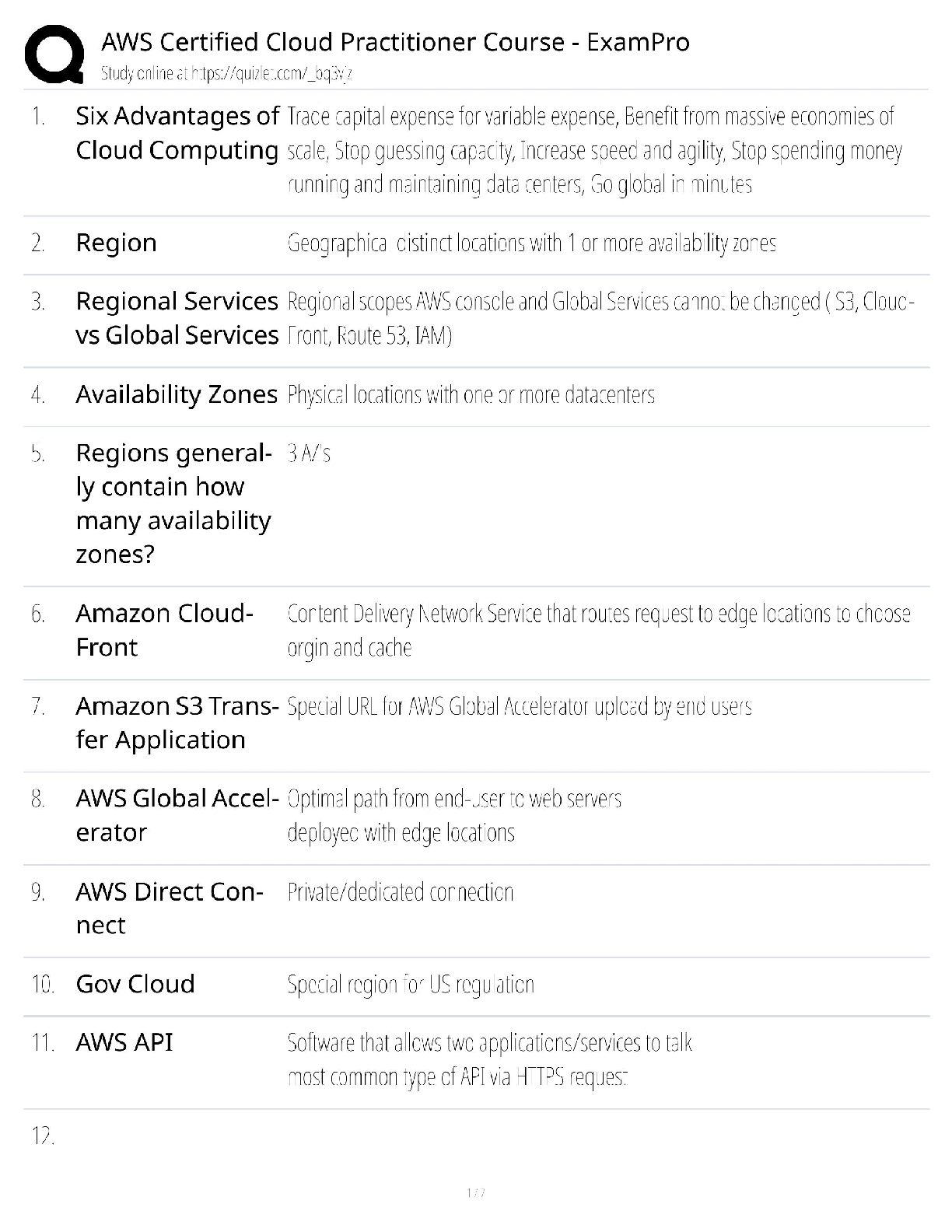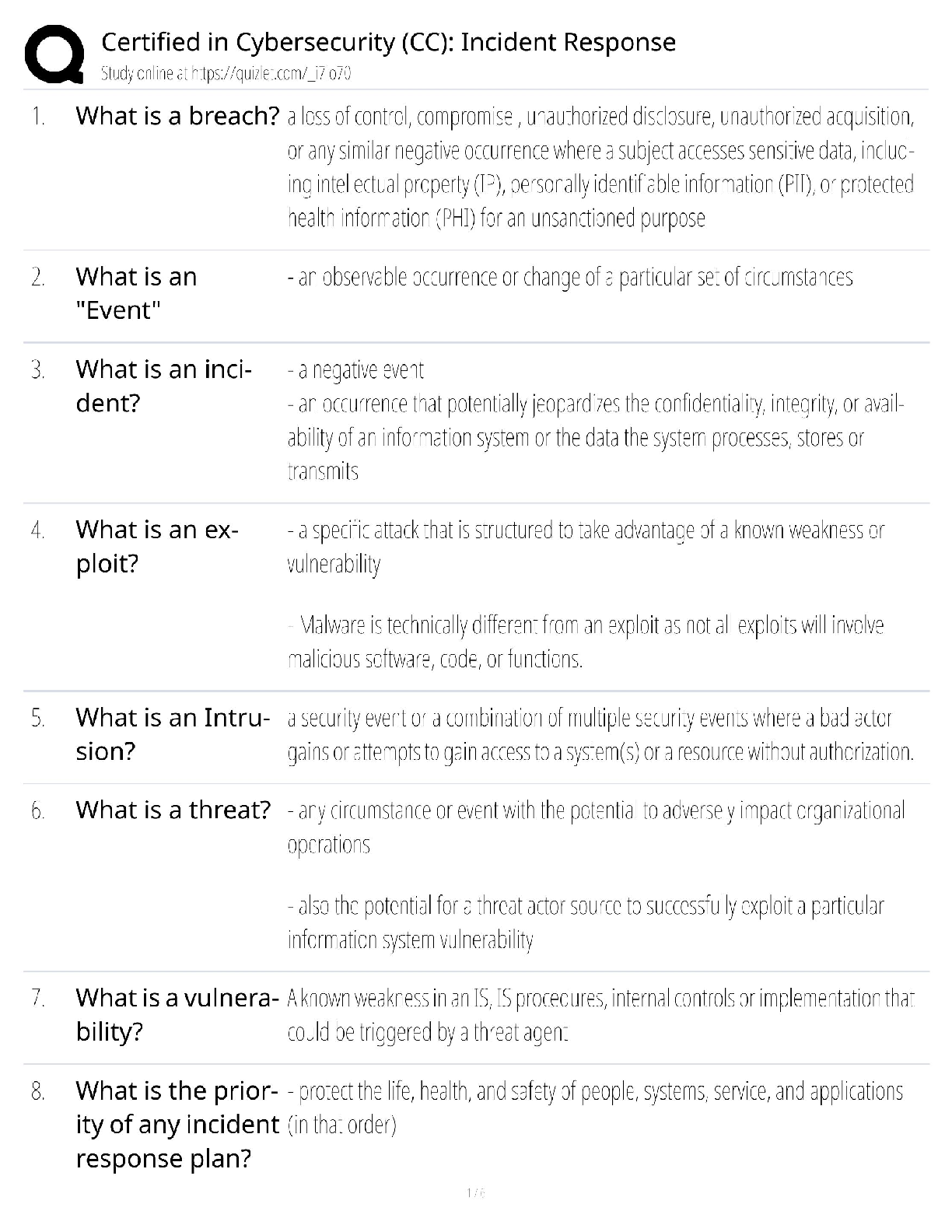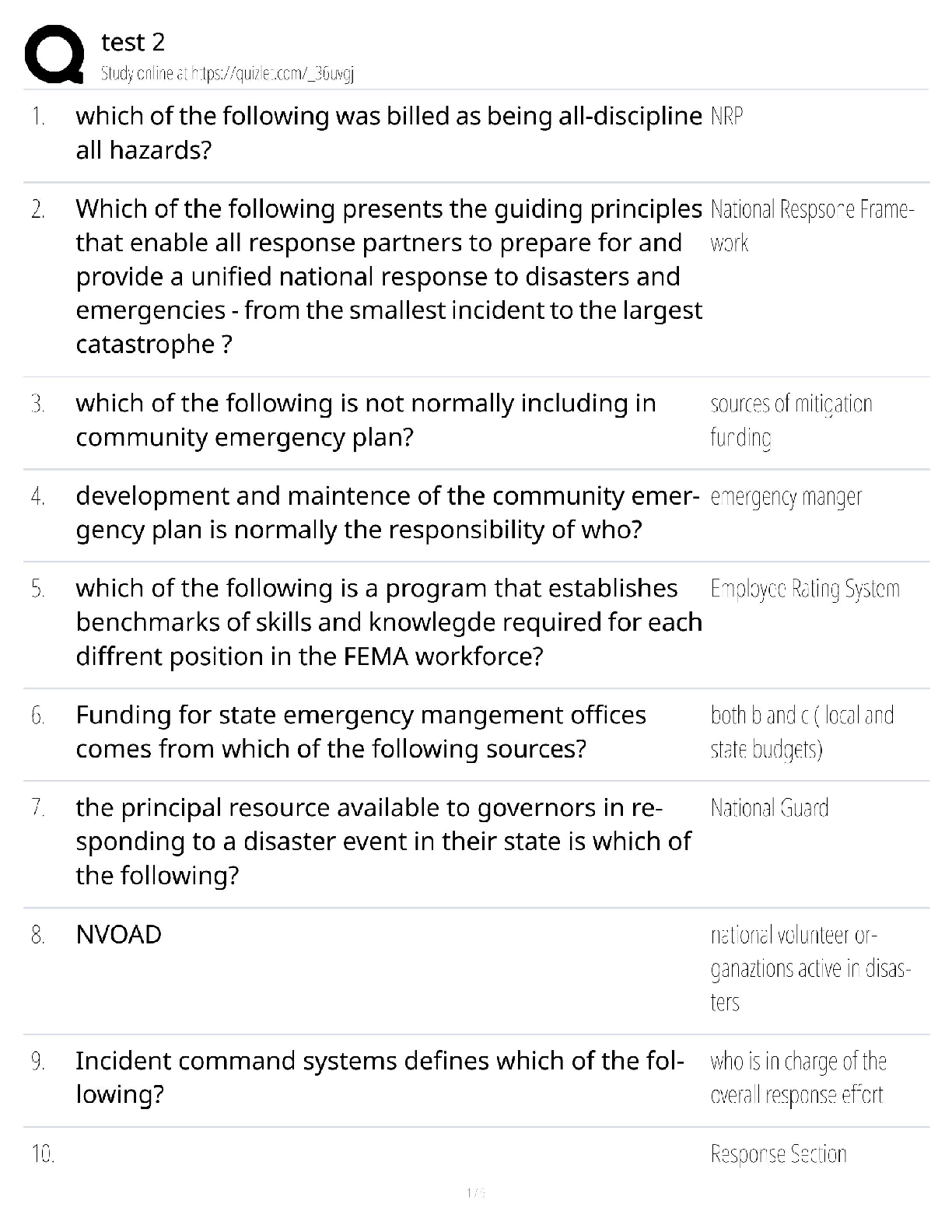English > QUESTIONS & ANSWERS > LETRS Unit 1 Session 3 Quiz Latest 2022 with Verified Solutions (All)
LETRS Unit 1 Session 3 Quiz Latest 2022 with Verified Solutions
Document Content and Description Below
LETRS Unit 1 Session 3 Quiz Latest 2022 with Verified Solutions During reading, your eyes typically stop on a word for about 250 milliseconds. In what situation(s) do your eyes need to fixate longe ... r on a word? a. when you read silently b. when you read aloud c. when you read an unfamiliar word ✔✔b. when you read aloud c. when you read an unfamiliar word Select the lobe of the brain that is responsible for higher-level thinking and planning, and for processing the sounds of speech. ✔✔Frontal Lobe Select the lobe of the brain that is responsible for recognizing print, letters, and letter patterns. ✔✔Occipital lobe Select the lobe of the brain where language is comprehended. ✔✔Temporal lobe Select the lobe of the brain that processes sensory information such as temperature, taste, and touch. ✔✔Parietal lobe Which of the following statements best explains why The Four-Part Processing Model is useful? a. It demonstrates why instruction should target reading comprehension. b. It emphasizes the importance of instruction in language comprehension. c. It represents the complex mental activity involved in word recognition. d. It illustrates that phonics is more important than comprehension ✔✔c. It represents the complex mental activity involved in word recognition. The phonological processor allows us to do which of the following? Select all that apply. a. "take in" the visual input of a written word b. break down words into phonemes c. learn the sounds of a foreign language ✔✔b. break down words into phonemes c. learn the sounds of a foreign language The phonological processor is what allows us to recognize the rising intonation of a question. true false ✔✔True What is the first sound in "switch"? /sh/ /s/ /swǐh/ /sw/ ✔✔/s/ What is the last sound in "switch"? /h/ /sh/ /ch/ /ǐtch/ ✔✔/ǐtch/ What is the vowel sound in "switch"? Choose your response. /ē/ /ī/ /ə/ /ĭ/ ✔✔/ĭ/ During reading, our eyes process each word letter by letter. true false ✔✔true How many letters does the eye normally take in at each fixation point before moving on to the next fixation point? a. five letters total b. however many letters are in each word c. 7-9 to the right and 3-4 to the left d. 3-4 to the right and 7-9 to the left ✔✔c. 7-9 to the right and 3-4 to the left The Four-Part Processing Model helps us understand _________________. a. which part of the brain handles word recognition b. how multiple parts of the brain must work together in order for word recognition to occur c. how multiple parts of the brain must work together in order for language comprehension to occur d. that reading comprehension is the product of word recognition and language comprehension ✔✔b. how multiple parts of the brain must work together in order for word recognition to occur The area known as the visual word form area or "brain's letterbox" is located in the _____________ lobe and is essential to the _____________ processor. a. frontal; phonological b. occipital; orthographic c. temporal; meaning d. parietal; orthographic ✔✔b. occipital; orthographic What are some symptoms of children who have trouble with phonological processing? Select all that apply. a. slow to blend sounds in words together b. keeping track of different definitions for multiple-meaning words c. difficulty remembering sounds for letters d. trouble spelling speech sounds for words ✔✔a. slow to blend sounds in words together c. difficulty remembering sounds for letters d. trouble spelling speech sounds for words [Show More]
Last updated: 3 years ago
Preview 1 out of 4 pages
.png)
Buy this document to get the full access instantly
Instant Download Access after purchase
Buy NowInstant download
We Accept:

Also available in bundle (1)
Click Below to Access Bundle(s)
.png)
LETRS Bundled Exams with complete solution(100% Verified)
LETRS Unit 4 Assessment 2022 Answers LETRS Unit 2 Test 2022 wit complete solution LETRS Unit 1 Session 2 with complete solution LETRS Units 5 - 8 Pre & Post Test 2022 with complete solution LETRS Unit...
By Nutmegs 3 years ago
$17
24
Reviews( 0 )
$7.00
Can't find what you want? Try our AI powered Search
Document information
Connected school, study & course
About the document
Uploaded On
Sep 26, 2022
Number of pages
4
Written in
All
Additional information
This document has been written for:
Uploaded
Sep 26, 2022
Downloads
0
Views
211





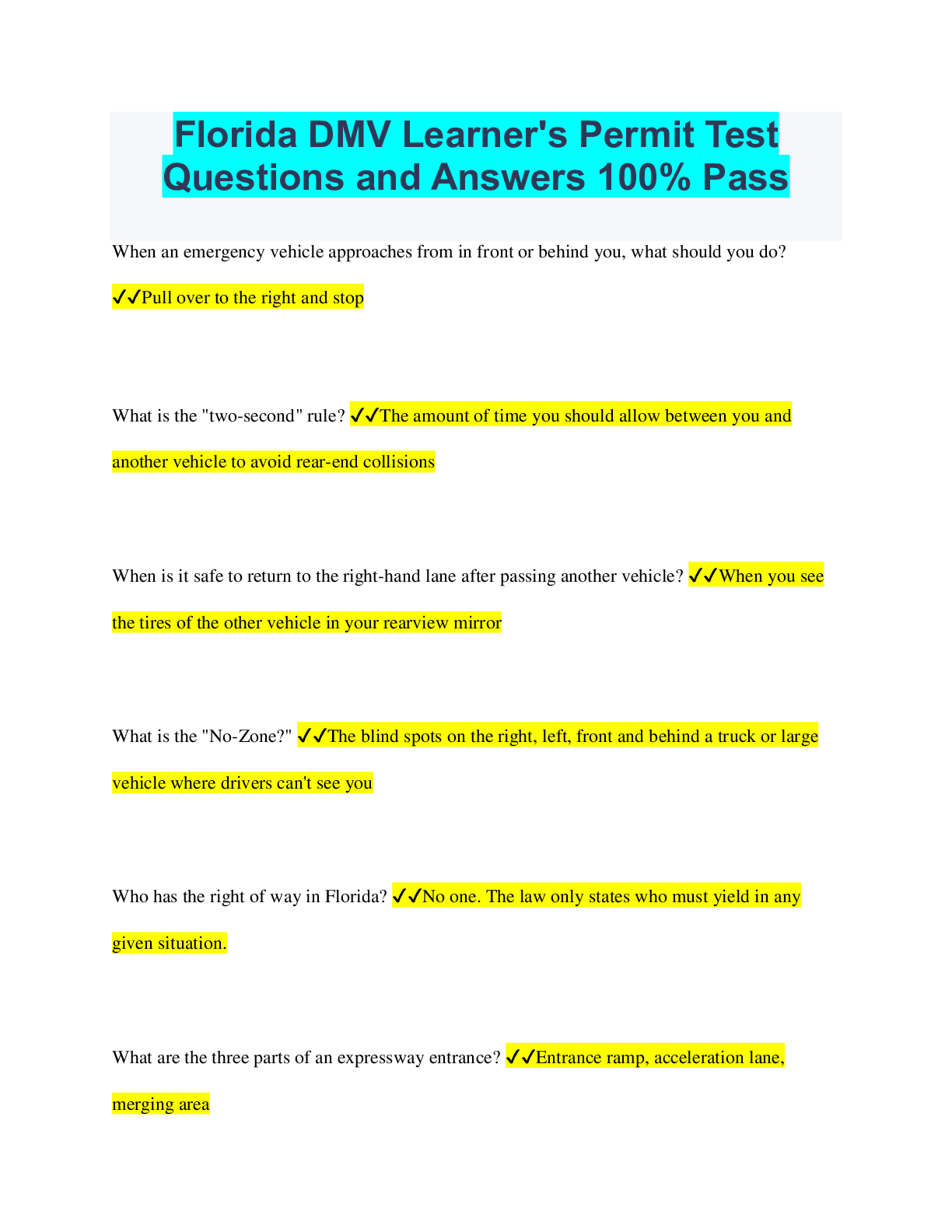
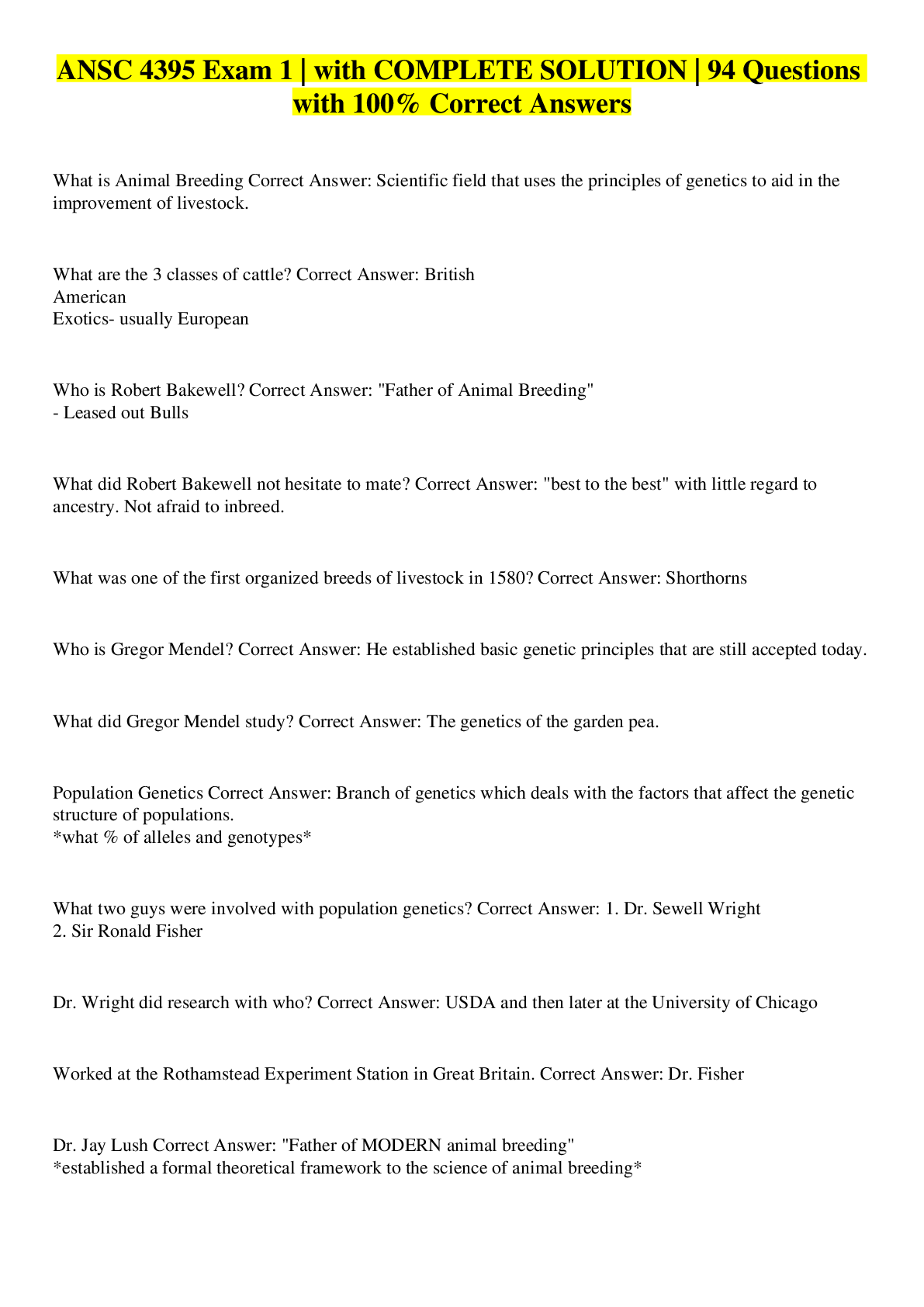

.png)

